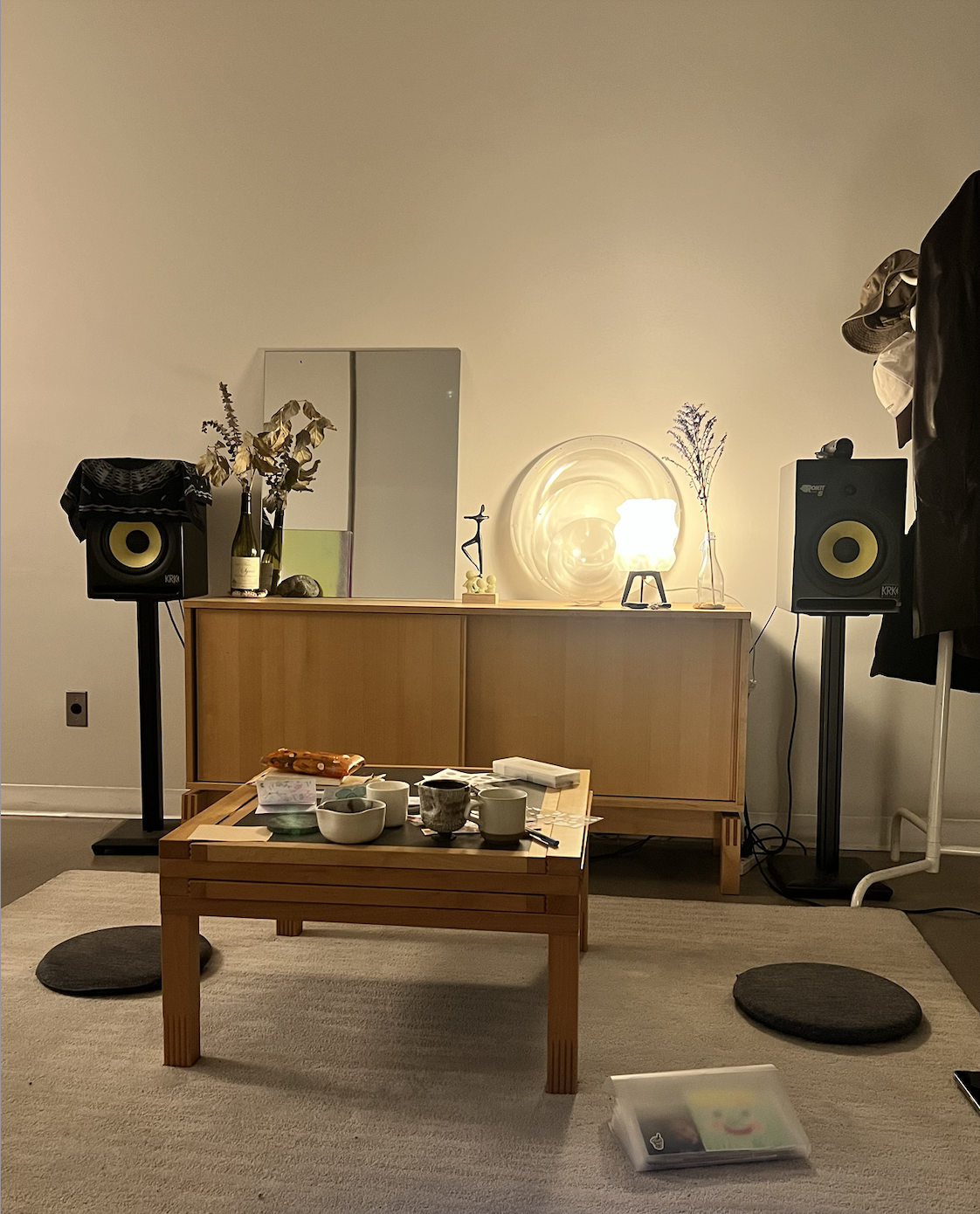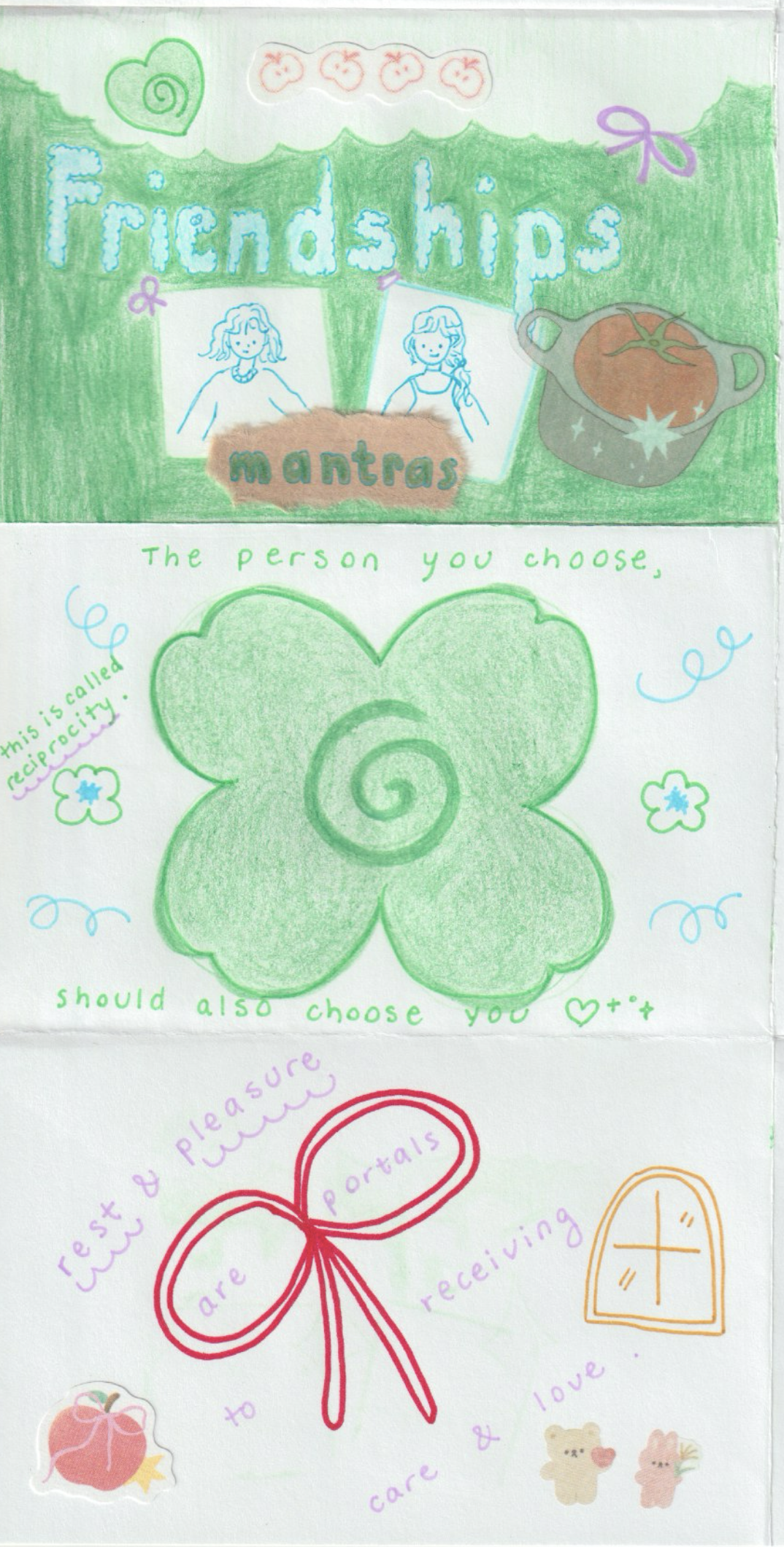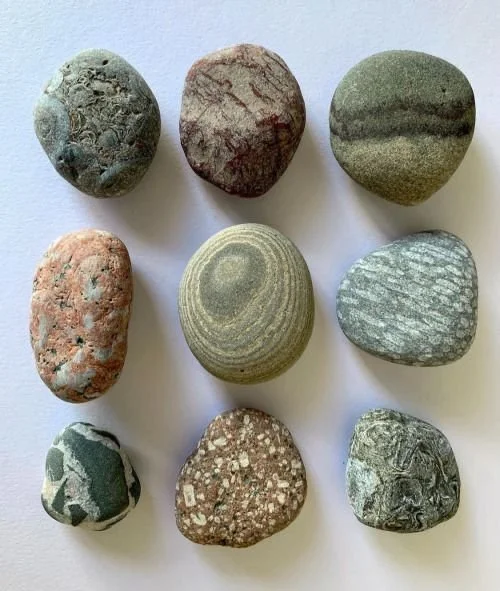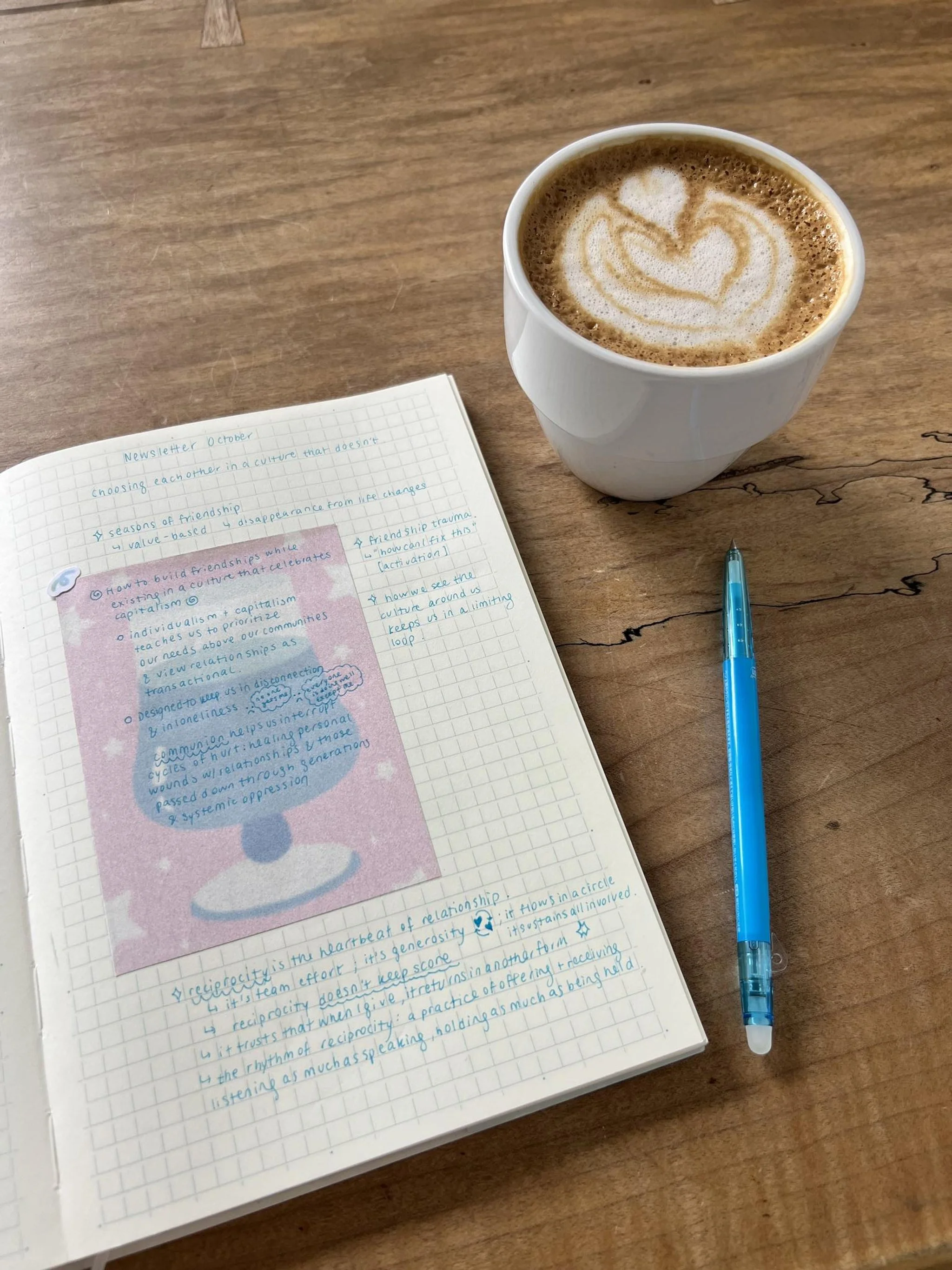from our newsletter, written by Linda Lin, RCC, RCAT
Growing up my grandma who raised me always said, “friendships and learning to connect with others help us cross the bridges of life” 🪷 ୧ ‧ ˚ (this is roughly translated to English)
A couple of decades later, I find myself circling back to her wisdom, because building connections and friendships is active resistance to capitalism and individualism. Friendship is a refusal of a culture that tells us to stay polished, self-contained, hyperindependent, and endlessly ‘productive’.
But here’s the question, how do we actually build real friendships when we’re swimming in a culture that glorifies capitalism, perfectionism, and even buying into community, when it's dressed up as 'self-respect'?
via Pinterest
-`♡´- -`♡´- -`♡´- -`♡´- -`♡´- -`♡´- -`♡´- -`♡´- -`♡´- -`♡´-
Reciprocity is the heartbeat of relationship.
Robin Wall Kimmerer reminds us that reciprocity is the heartbeat of relationship. The Earth offers us gifts—berries, shade, clean water—not so we can hoard them, but so we can learn the joy of giving back. Reciprocity flows in a circle, isn't one-sided, sustaining everyone involved. It also reminds me of generosity, a value my mother taught me.
When we strive to live in the rhythm of reciprocity instead of keeping score, we learn to offer, and make room to receive.
We make listening as important as speaking, holding as important as being held.
Reciprocity doesn’t keep score; it trusts that when we give, it returns in another form, in another season.
-`♡´- -`♡´- -`♡´- -`♡´- -`♡´- -`♡´- -`♡´- -`♡´- -`♡´- -`♡´-
sleepover and zine making a friend~
Prioritize connection > productivity!
Individualism and capitalism teaches us to prioritize our needs above our communities and view relationships as transactional.
It's literally designed to keep us in disconnection and in loneliness.
There were so many days when I find myself after a full day of work and feeling so exhausted to make plans with people who support my nervous system and would interrupt these cycles of anxiety.
snippet of my friendship mantras zine!
✦ ‧₊˚ ⋅✦ ‧₊˚ ⋅✦ ‧₊˚ ⋅✦ ‧₊˚ ⋅✦ ‧₊˚ ⋅✦ ‧₊˚ ⋅✦ ‧₊˚ ⋅✦ ‧₊˚ ⋅✦ ‧₊˚ ⋅✦ ‧₊˚ ⋅
Rest and pleasure are portals to receiving care and love ♡
Especially when we are trained/conditioned to work, serve, and over-function, choosing rest, joy, pleasure, and time with friends is a way to restore love’s presence in our lives. Communion helps us interrupt cycles of hurt: healing personal wounds with relationships and those passed down through generations and systemic oppression.
Prioritizing our needs is not above our relationships (capitalism/individualism) nor is our relationship above our needs (relational trauma/wounding).
✦ ‧₊˚ ⋅✦ ‧₊˚ ⋅✦ ‧₊˚ ⋅✦ ‧₊˚ ⋅✦ ‧₊˚ ⋅✦ ‧₊˚ ⋅✦ ‧₊˚ ⋅✦ ‧₊˚ ⋅✦ ‧₊˚ ⋅✦ ‧₊˚ ⋅
via Pinterest
⊹₊。ꕤ˚₊⊹⊹₊。ꕤ˚₊⊹⊹₊。ꕤ˚₊⊹⊹₊。ꕤ˚₊⊹⊹₊。ꕤ˚₊⊹⊹₊。ꕤ˚₊⊹⊹₊。ꕤ˚₊⊹⊹₊。ꕤ˚₊⊹
Communion is the antidote to loneliness and alienation!
Communion counters loneliness and alienation. Our culture reinforces individualistic behaviours, which shape how we maintain—or let go of—relationships, like the drifting or disappearance of friendships in adulthood after life changes such as moving away, starting a new relationship, landing a new job, or having a child.
bell hooks reminds me in Communion that true connection invites us into intimacy, belonging, and presence.
I’ve been practicing little ways of stepping off the hamster wheel, where I prioritize friendships and relationships instead of letting the system dictate my pace. I’m learning again and again that connection can be one of our greatest sources of nourishment and healing.
When we slow down enough to be with a friend, we’re pushing back against the myth that our value lies only in output.
Whether it’s cooking a meal together, walking or playing at the park, or even having an adult sleepover (SO fun), friendships are how we choose connection over keeping score, competition, and the endless busyness capitalism asks of us. 𖦹
⊹₊。ꕤ˚₊⊹⊹₊。ꕤ˚₊⊹⊹₊。ꕤ˚₊⊹⊹₊。ꕤ˚₊⊹⊹₊。ꕤ˚₊⊹⊹₊。ꕤ˚₊⊹⊹₊。ꕤ˚₊⊹⊹₊。ꕤ˚₊⊹
So here's to choosing each other in a culture that doesn't.
₊˚🍏 ྀ౿ written by yours truly, Linda
Community building events coming to Decipher this Fall/Winter!
✮ monthly TEAR CLUB! (anti-perfectionism) with Chloe, our art therapist .ᐟ.ᐟ ˚⊹
✮ weekly OFF-SCREEN HOURS art therapy drop-ins with our interns coming soon .ᐟ.ᐟ ⋆˙⟡
A space where we can build community, make art, and connect more deeply with yourself and the world! Think of it as a group therapy session, but in a fun, casual, community-focused way, away from screens and winding down from our week.
Also a perfect activity for rainy days with a friend or two in our studio located in downtown ‘Vancouver’.
Check back soon for updates!









